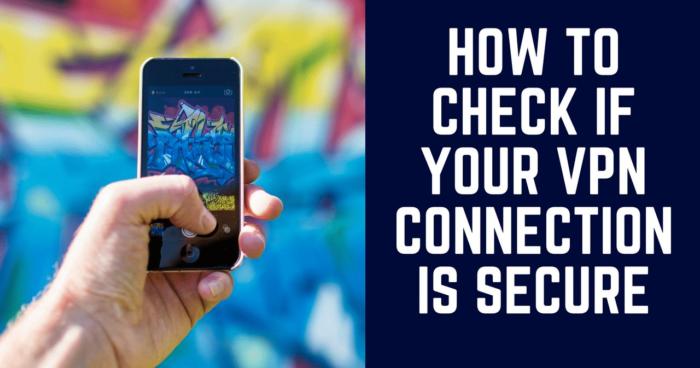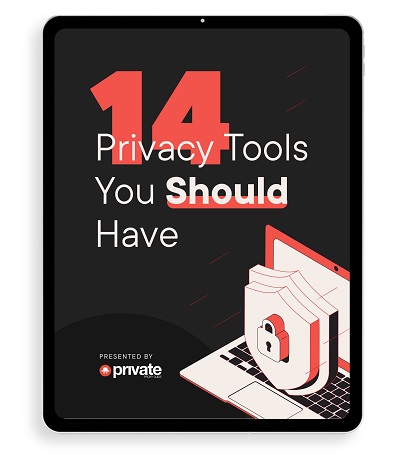As many other users do, I use VPNs to protect my data while I browse the internet. However, VPNs aren’t perfect. Therefore, I often check if my VPN connection is secure so that my PC doesn’t suffer from outside risks. This is also a part of the testing procedure here at Private Proxy Guide.
What is a VPN?
VPN stands for Virtual Private Network. People use VPN connections primarily for data security. Naturally, leaks will happen, and people who want to break into someone’s VPN will find ways to do it. The best thing to do is to get the tools that will help test a VPN. Testing a VPN will let the user know if the VPN is doing its job or not. At times, even a poorly set up VPN can lead to errors that make the PC leak data and expose the user’s IP address. The text below will cover a few various tests, as well as tools that can help with VPN security testing.
IP Address Leaks
My VPN will probably not protect my IP address, even if it claims that it can. In fact, based on several studies, many VPNs leak the IP addresses of users. There are online IP leaking test tools that can help with this case, but I will talk about a different way to test for this problem.
One of them is https://whatismyipaddress.com/.
Normally I test for IP address leaks when my VPN connection is active. However, it is also very important to do this when it’s reconnecting. Based on my experience, I can confirm that most of the time, the IP address will leak once the VPN reconnects, usually after the connection drops, like during a power outage or a router disconnect. I should point out that VPNs ought to have one particular kill switch. When their connection drops, I use that switch to block out any internet traffic for as long as I want.
Steps for Testing IP Leaks of a Reconnecting VPN
- First off, I disconnect my Internet connection, but I keep the VPN connected and still running.
- Next, the minute my connection drops, I reconnect and do a so-called “rapid-fire” testing sequence of my IP. In other words, I open up tons of tabs on the IP test page. The moment I do so, I refresh them like crazy – all of them, as fast as possible.
- Upon VPN reconnection, I stop my fast refreshing and check the results. If I happen to see my real IP address in more than one tab, I’m sure I have a leak. If not, I’m good.
For anyone who wants to know how to prevent these leaks, the best advice I can give is to get a more secure VPN connection. Personally, I have a VPN that supports IPv6, which I can manually disable if I have issues like this. The reason I use this type of VPN is that it also offers protection against leaks in IPv4.
DNS Leaks
Domain Name System, or DNS, exists to give users easier access to web pages. It does this by translating any domain name to the IP address it corresponds with. Generally speaking, this domain name translation to IP addresses is something an ISP, or Internet Service Provider, should do. A VPN masks my real IP address, though, so that nobody can see or track where I am online. There are times when a translation request I make leaks from the VPN. When this happens, anyone can see what my IP address and ISP location are. For this reason, I should do a DNS leak test as soon as possible.
How to Test for DNS Leaks
Once I notice that my info went through the VPN, I connect to a different VPN, one with a server that isn’t in my country. What I do next is check my info using online DNS leak tools. Then I look at the location, the IP address, as well as other various ISP details. If they all match my own data, I know there has been a DNS leak.
One of them is https://ipleak.net/.
Now, this leak isn’t of my personal IP address, but rather that of my ISP. However, anyone can use the ISP data to track me down if they want to. The best way to prevent any DNS leak is to have a VPN with its own DNS system, which should have encryption.
WebRTC Leaks
WebRTC is an Application programming interface or API, which is normally part of web browsers such as Opera, Chrome, and Firefox. This API allows users to perform P2P file shares, as well as do video and voice chats directly in the browser without having to install an extension. I’m not an Internet Explorer user, but I ought to add that this browser has plugins that will provide it with WebRTC support. A WebRTC leak happens when a user’s IP address finds its way through a WebRTC API. There are websites online where anyone can check if their VPN is experiencing this particular leak. The solution to this problem is easy. All I have to do is disable WebRTC in my browser. The minute I do that, any leaks stop.
Performing a VPN Speed Test
It is of vital importance to test a VPN’s speed. In fact, I would go so far as to say that a fast VPN is just as important as a safe and secure one. There are free and legal services online that can help with VPN speed testing. Naturally, there are lots of different factors that can mess with a VPN’s speed, and I will list them below.
One of them is https://www.speedtest.net/.
1. Encryption Level
The bigger the level of encryption is, the slower the VPN speed gets. For example, PPTP protocol is not as safe as L2PT, but it’s much faster. The solution to this problem depends on what I normally do online. If what I do doesn’t require tons of encryption, I stick with lower-level encryption protocols.
2. How Many Users are Active on the VPN Server
If a VPN service provider is popular with customers, their servers will have a lot of users. As a result of that, the VPN will have a slow speed. I used to have these problems, so when I was going to buy a new VPN, I checked for their server status page. This page would provide me with bandwidth info that gets regularly updated in real-time.
3. Firewall Setup
Antivirus software, and firewalls in particular, can mess with other programs a lot. VPN is not an exception here. It’s also important that the firewall doesn’t obstruct the CPU performance, as it can also affect the VPN’s speed.
4. The VPN Server is Physically Far from the User
Anyone who’s used VPNs outside of their country knows for a fact how common this problem is. Naturally, the best possible solution here is to get a VPN that’s in the same country as the user. However, I also used to get VPNs from at least one country over. It might be slower than the one in my country, but not by much, and certainly not as slow as, say, VPNs a continent away.
5. ISP Limitations
Ultimately, as fast as my VPN is, I still depend on my Internet Service Provider. It controls the speed of its users, irrespective of what the user might need from their VPN. The solution to this comes down to choosing a decent ISP that allows for faster speeds.
6. The Processor
An active PC is constantly working with information, encrypting and decrypting it non-stop. Whatever I do while using my VPN, the processor has to…well, process. And the faster the internet speed gets, the more work there is for the processor. The solution to this, of course, is to get a good processor to handle these VPN speeds.
So, What to Do if a VPN Leaks?
I’ve had VPNs leak info in the past. The first thing I do is contact the VPN customer support. They are my safest bet for fixing the issue. If that doesn’t work, I switch to a VPN service that is higher-ranked than the one I currently use. Naturally, it must also be one that doesn’t leak. One thing I should note is that most VPN services tend to target users with little experience, offering deals that sound too good to be true. Using proper online tools, anyone can check their VPN for leaks, so that they know whether or not they need to switch to a different service or stick with the one they currently have. We hope you learned a bit more about how to check if your VPN connection is secure with these tips.
We earn commissions using affiliate links.



![Best Free Online Virus Scanners [year] Quick & Effective Best Online Virus Scanners](https://www.privateproxyguide.com/wp-content/uploads/2022/06/Best-Online-Virus-Scanners-150x150.jpg)


![7 Best VPN for LG Smart TV [year]: Fast & Easy Streaming Best LG smart TV VPN](https://www.privateproxyguide.com/wp-content/uploads/2022/01/Best-LG-smart-TV-VPN-150x150.jpg)
![10 Best VPN for Chromecast [year]: Fast & Easy Streaming Setup Best VPN for Chromecast](https://www.privateproxyguide.com/wp-content/uploads/2022/01/Best-VPN-for-Chromecast-150x150.jpg)
![10 Best VPN for Asus Router [year]: Fast & Easy Setup Best VPN for Asus Routers](https://www.privateproxyguide.com/wp-content/uploads/2022/08/Best-VPN-for-Asus-Routers-150x150.jpg)



![Best Twitch Video Downloaders [year] for Easy Saving Best Twitch Video Downloaders](https://www.privateproxyguide.com/wp-content/uploads/2022/10/Best-Twitch-Video-Downloaders-150x150.jpg)
![How to Change Region on PS4 & PS5 ([year]) [3 Easy Steps] How to Change Region on PS4 & PS5](https://www.privateproxyguide.com/wp-content/uploads/2023/02/How-to-Change-Region-on-PS4-PS5-150x150.jpg)
![How to Change Disney Plus Region [year] (3 Easy Steps) How to Change Disney Plus Region](https://www.privateproxyguide.com/wp-content/uploads/2023/02/How-to-Change-Disney-Plus-Region-150x150.jpg)
![How to Change Region on Valorant ([year]) [3 Easy Steps] How to Change Region on Valorant](https://www.privateproxyguide.com/wp-content/uploads/2023/02/How-to-Change-Region-on-Valorant-150x150.jpg)
![How to Change Region on Play Store ([year]) [3 Easy Steps] How to Change Region on Play Store](https://www.privateproxyguide.com/wp-content/uploads/2023/02/How-to-Change-Region-on-Play-Store-150x150.jpg)